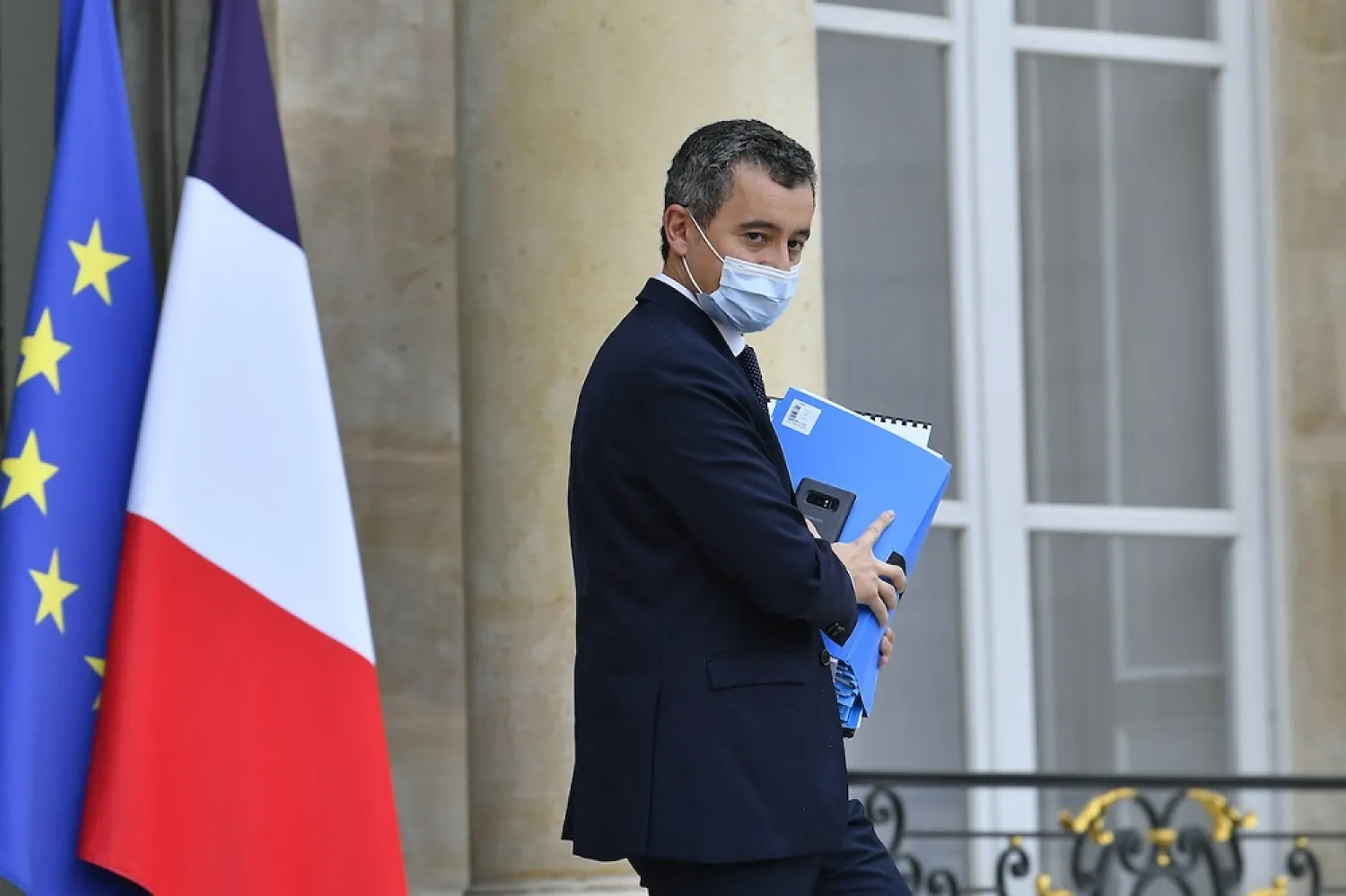French Interior Minister Gerald Darmanin did not receive from Algeria a pledge to receive Algerian residents in France whom Paris is seeking to deport over their ties to terrorism.
On a two-day visit to Algeria, the French official met on Saturday with his counterpart, Kamel Beldjoud to discuss the fight against terrorism and illegal immigration.
Darmanin was in Algeria in wake of a fatal knife attack at a church in Nice last week.
France's chief anti-terrorism prosecutor has said the man suspected of carrying out the Nice attack was a Tunisian born in 1999 who had arrived in Europe on Sept. 20 in Lampedusa, the Italian island off Tunisia.
Darmanin had paid a visit to Tunisia ahead of arriving in Algeria.
Sources following the minister’s visit said he informed Algerian authorities that his government has decided to expel Algerians, including a mosque imam. He requested that Algerian authorities refrain from prosecuting them before the judiciary.
The sources explained that France was seeking a pledge from Algeria that the deportees would not be imprisoned, which it could therefore, use a way to persuade them to return to their home country. This way, Paris would also avoid them resorting to European courts to annul the deportation.
The sources said Algerian official have expressed reservations over the French request, explaining that such an issue infringes on the country’s sovereignty. They said that Algiers was ready to tackle the case of every suspected radicalized Algerian and only then will their fate be decided.
Some of the potential deportees are fugitive members of the banned Islamic Salvation Front. They left Algeria in wake of acts of terrorism that followed the military’s intervention to annul parliamentary elections that were won by Islamists in 1991.
Many of those who left Algeria had sought political asylum in France. The Algerian judiciary, which accused them of terrorism, has sought their capture ever since they quit the country.









